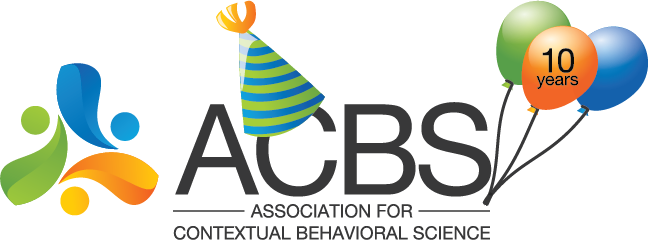|
ACBS Newsletter - November 2015
|
||||
Happy 10th Birthday, ACBS!
|
||||
Perspective taking reduces the Fundamental Attribution Error (FAE)The fundamental attribution error (FAE) refers to the predisposition for people to attribute the behavior of others to dispositional characteristics, rather than situational causes external to the individual. The current study aimed to investigate whether pre-experimental perspective taking (PT) training could reduce the FAE. Participants were randomly assigned to either receive PT training, or to receive no training, before completing a typical attitude attribution task. This task required participants to watch a video clip of an actor reading an essay for or against capital punishment and then to infer the attitude of the actor. Results indicated that participants in the perspective taking condition experienced a significant reduction in the FAE compared to participants in the control condition. To read the published account of the study and learn more about the intervention used visit the ACBS member portal to JCBS here. If you would like to contribute to JCBS please see our updated submission information page. If you would like a better resource to cite JCBS content, see our new JCBS reference sharing page which includes a downloadable Endnote file for all published and in-press JCBS articles. |
||||
Q&A with Dennis Tirch, Ph.D., and Laura Silberstein, Psy.D.In this interview, Dennis Tirch and Laura Silberstein discuss their book, The ACT Practitioner's Guide to the Science of Compassion, co-authored with Benjamin Schoendorff. Dennis and Laura touch on the initial inspirations for the book, particularly around how mindfulness is being integrated into cognitive and behavioral therapies that transcend specific theoretical approaches. The authors go on to describe the role of compassion within the ACT model, and the interrelation between compassion, mindfulness, and acceptance. They also provide examples of how other members of the ACT community are researching and implementing compassion, and offer a discussion on why utilizing compassion in therapy may be theoretically important in ways that cut across specific, formal characteristics of disorders. To read the full interview click here. |
||||
World Conference 13 Powerpoints, Handouts, and Posters!
|
||||
Join us in Seattle for World Conference 14!
|
||||
|
||||
| Connect. Share. Grow. |
See you at the Seattle World Conference! to be held June 14-19, 2016. Go here for more information. |
 |
||





